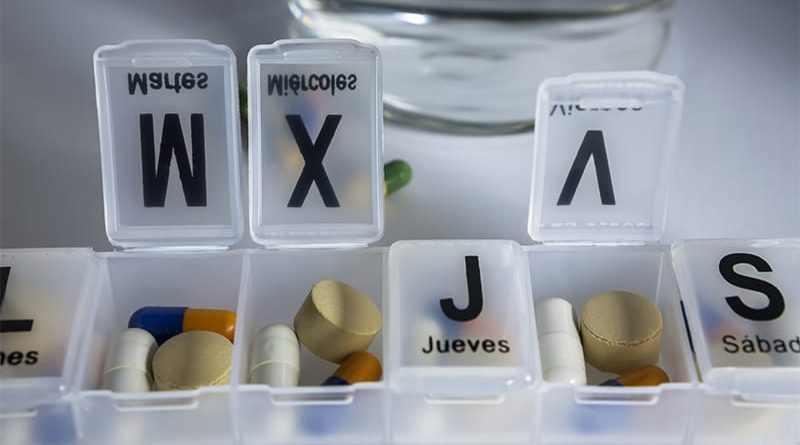Polypill Has LDL-Cutting Edge in Primary Prevention Patients
The study covered in this summary was published at researchsquare.com as a preprint and has not yet been peer reviewed.
Key Takeaways
-
The CNIC (Centro Nacional de Investigaciones Cardiovasculares) polypill contains acetylsalicylic acid (100 mg), atorvastatin (30 mg or 40 mg), and ramipril (2.5 mg, 5 mg, or 10 mg), and is the only polypill for cardiovascular disease (CVD) currently marketed in European countries.
-
In a 16-week trial of 499 patients without clinical CVD but with potent CVD risk factors, the polypill was compared with usual care, which consisted of continuation of the medications that patients were treated with before enrollment in the study.
-
The reduction in low-density-lipoprotein cholesterol (LDL-C) with the polypill was both noninferior and superior to the conventional multipill regimen.
-
Reductions in systolic blood pressure (SBP) were not statistically different between the groups, but noninferiority was not achieved.
Why This Matters
-
CVD is the leading cause of death in patients 50 years and older, according to the World Health Organization, and LDL-C and SBP are two important modifiable risk factors for the development of CVD.
-
Multipurpose polypills for CVD prevention, several of which exist, are thought to have some advantages over multidrug approaches with the individual agents, including the prospect of improved patient adherence to treatment.
-
The benefits of a polypill strategy for CVD have been documented in several recent trials. The CNIC polypill has been reported to reduce and control LDL-C and SBP, and to decrease risk for CVD events.
Study Design
-
The VULCANO study was a prospective phase 3, randomized, open-label trial conducted at 47 centers in Mexico, Portugal, and Spain from 2017 and 2019.
-
The study involved adult men and women at high or very high risk for CVD with one of the following sets of conditions: evidence of subclinical atherosclerosis; diabetes mellitus and hypertension or albuminuria; or hypertension and left ventricular hypertrophy, albuminuria, or renal impairment.
-
Subjects were required to have adequate control of blood pressure and LDL-C while on a statin and antihypertensive medication (ACE inhibitor or angiotensin-receptor blocker) in the 3 months before randomization.
-
Subjects were excluded if they had conditions that contraindicated treatment with the polypill components or if they had a history of cardiovascular events, advanced or severe hypertension, hypercholesterolemia, or congestive heart failure.
-
The participants were randomly assigned to take the polypill (n = 251) or maintain their usual-care regimens (n = 248) for 16 weeks. Patients who clinically required adjustments to their lipid-modifying or antihypertensive regimen or dosages were withdrawn from the study.
Key Results
-
The mean level of LDL-C, similar in the two groups at baseline, was reduced by 0.48 mg/dL in the polypill group at 15 weeks, a difference that met the trial’s criteria for both noninferiority and superiority (P = .0001).
-
The difference in SBP at 16 weeks averaged only 1.43 mm Hg, a nonsignificant change (P = .21) that was inconclusive for noninferiority; SBP remained stable throughout the trial in both groups.
-
Levels of total cholesterol slightly increased (+0.7%) in the usual-care group and decreased (–7.0%) in the polypill group (P = .0004).
-
Mean non-high-density-lipoprotein-cholesterol levels fell 8.9% in the polypill group and 1.8% in the usual-care group (P = .0017).
-
Treatment-related adverse events were more frequent in the polypill group: 21 events in 17 subjects, or 6.9%, compared with two events in two subjects, 0.8%, in the usual-care group.
Limitations
-
The study’s short duration may have limited differences between treatment groups that could be observed.
-
There could have been bias related to the trial’s open-label nature.
-
The sample size calculated for a noninferiority trial may not have been sufficient for assessing differences in secondary endpoints.
Disclosures
-
Ferrer Internacional SA sponsored the study and participated in the steering committee that designed the trial.
-
One author is an employee of the Medical Department in Ferrer Internacional SA. The remaining authors received consultant honoraria and research support from Ferrer Internacional SA.
This is a summary of a preprint research study, Safety and Efficacy of a Cardiovascular Polypill in People at High and Very High Risk without a Previous Cardiovascular Event The International VULCANO Randomised Clinical Trial , written by Jose Maria Mostaza from Hospital Carlos III and colleagues, on researchsquare.com provided to you by Medscape. This study has not yet been peer-reviewed. The full text of the study can be found on researchsquare.com.
Source: Read Full Article



